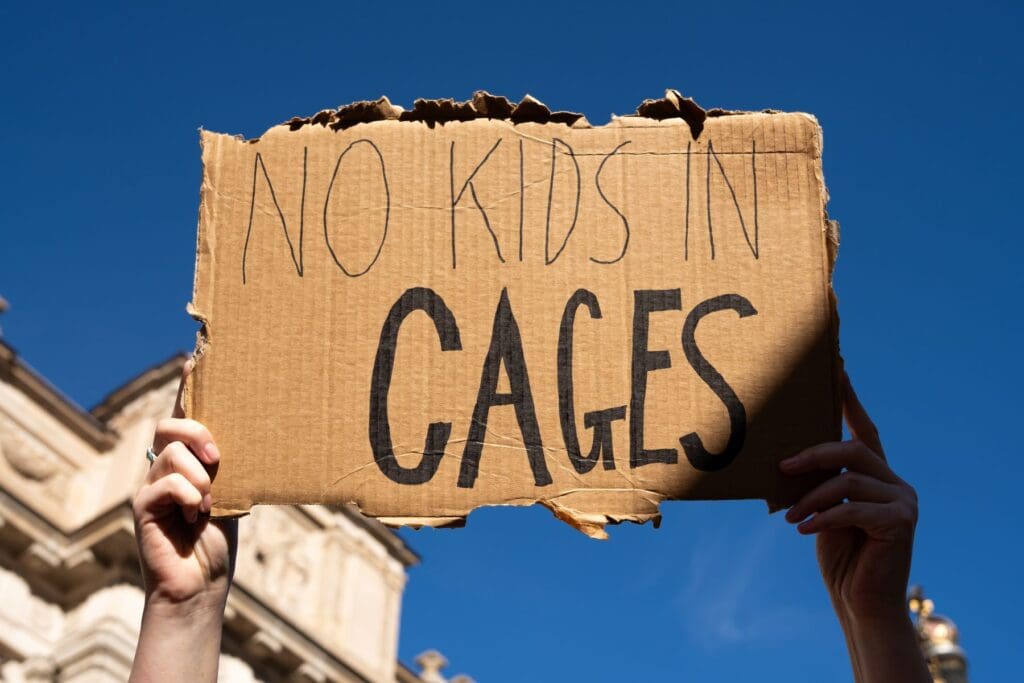Allan Government misses opportunity to get youth justice reform right
The Allan Government will continue to jail 12 and 13 year old children and has missed an opportunity to get youth justice reform right, says the Human Rights Law Centre after the Victorian Parliament passed the Youth Justice Bill today.
Five years in the making, the laws are a step forward and an opportunity to improve the status quo, with enhanced provisions on warnings, cautions and diversions and a statement of guiding youth justice principles welcomed.
Additional amendments made to strengthen the laws include banning the use of dangerous spithoods and the introduction of public reporting requirements for the use of strip searches and isolation in youth prisons.
The passing of the laws is testament to the sustained advocacy of Aboriginal and Torres Strait Islander, human rights, social services, health and youth groups over the past five years.
But the laws also represent a missed opportunity for the Allan Government to get youth justice reform right, with much more needed to be done in order to ensure that all Victorian children have the best chance of a brighter future.
The laws risk needlessly locking more children up by making it harder to get bail, and easier for police to revoke bail. The laws also provide for a trial of harmful and ineffective electronic monitoring and make it easier for children as young as 16 to be locked away in adult prisons.
Earlier this month, the Allan government backflipped on its promise to raise the minimum age of criminal responsibility from 10 to 14 years old. The Youth Justice Bill only raises the minimum age of criminal responsibility to 12, putting it at odds with recommendations made by the Yoorrook Justice Commission, numerous parliamentary inquiries, United Nations bodies, medical advice and Aboriginal and Torres Strait Islander experts.
Alarmingly, the laws were passed with new powers that will allow police to transport, detain and use force on children aged 10 and 11 years old once the age is raised to 12. These powers undermine the purpose of the raise the age reform and risk fuelling discriminatory policing, particularly in the absence of an independent police watchdog.
To maximise the chances of the laws having a positive impact for Victorian children, the Allan Government must not submit to the fearmongering, and instead provide care to children and their families by funding community-led services and programs.
Quotes attributed to Monique Hurley, Associate Legal Director at the Human Rights Law Centre:
“Children should grow up in our schoolyards and playgrounds, never locked up behind bars. While the Youth Justice Bill passing the Victorian Parliament has the potential to improve the status quo, there is still a long way to go before the Allan Government has got youth justice reform right.
“Every day that the Allan Government refuses to raise the age to at least 14 is another day of failing a generation of children who are being harmed and locked away behind bars. Pipelining 12 and 13 year old children into youth prisons does not make the community safer. Safety is ensuring that every child has a secure home, is engaged at school, and is connected with family and community.
“Looking forward, the Allan Government must abandon its obsession with ‘tough on crime’ politics which is failing children and the community. The evidence is clear that increasing police powers and continuing to pipeline children into youth prisons is not the answer. The Allan Government must listen to the abundance of expert evidence from Aboriginal and Torres Strait Islander, medical, child development, youth, legal and human rights groups on what works to help children and make the community safe.
Media contact:
Thomas Feng
Engagement Director
0431 285 275
thomas.feng@hrlc.org.au
Media Enquiries
Chandi Bates
Media and Communications Manager

University of Melbourne urged to drop repressive anti-protest and surveillance policies
The University of Melbourne is being urged to abandon policy changes that restrict staff and students’ right to protest and permit the widespread surveillance of people using their wifi network.
Read more
Expanded protections for marginalised groups welcomed in Allan Government’s anti-vilification laws
The Human Rights Law Centre welcomes the additional protections for marginalised groups in anti-vilification laws passed today by the Allan Government. These laws expand protections from vilification to include people from LGBTIQA+ and disability communities, and provide communities with important civil law avenues to address vilification.
Read more
Aboriginal human rights experts take Australia’s racist youth justice policies to the UN
Aboriginal leaders are calling on the United Nations to take urgent action to address Australia’s discriminatory and punitive youth justice policies
Read more


